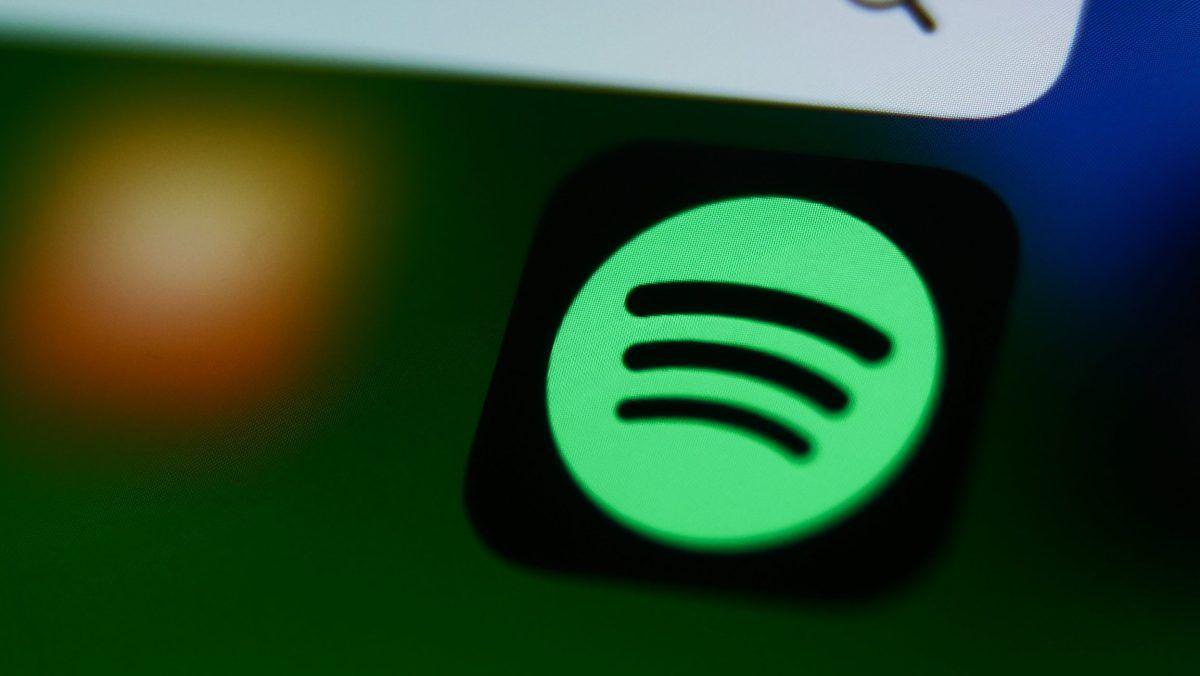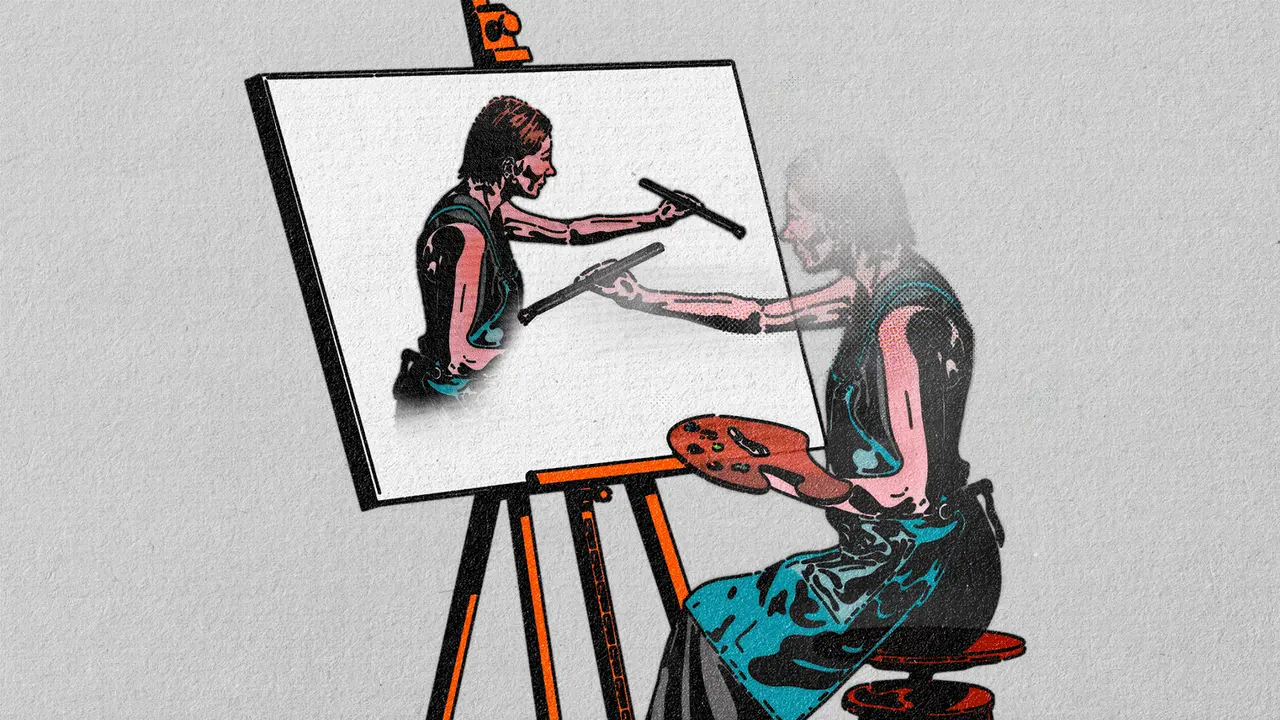Major Music Labels Embrace AI with Klay Partnership, Marking Industry Shift
4 Sources
4 Sources
[1]
The music industry is all in on AI
Two years ago, "BBL Drizzy" was the AI music shot heard around the world: a song with vocals that sounded like Drake bubbled up from nowhere and launched what was shaping up to be a battle of artistry, likeness, and of course, copyright. The big three labels -- Universal Music Group (UMG), Sony Music Entertainment, and Warner Records -- sued AI companies Udio and Suno for copyright infringement "en masse"; they staged public spats with TikTok over issues including AI content on the platform; and they began spinning up AI detection tools to keep tabs on how their music moved around. Now the music industry and AI startups appear largely aligned on a (monetizable) path forward -- and it looks a lot like the system artists are already stuck in. On Wednesday, Bloomberg reported that the music startup Klay became the first AI music company to ink deals with all three major labels. Klay, which bills itself as an "ethical" AI platform, is reportedly working on a streaming service that would allow users to remix existing songs in different styles, according to Bloomberg, with a model that is trained on thousands of licensed songs. In a press release published Thursday, Warner Records sang the startup's praises: "KLAY is not a prompt-based meme generation engine designed to supplant human artists. Rather, it is an entirely new subscription product that will uplift great artists and celebrate their craft," the press release reads. "Within KLAY's system, fans can mold their musical journeys in new ways while ensuring participating artists and songwriters are properly recognized and rewarded." Settlements have also started trickling in between labels and AI music companies: UMG settled with Udio in October, and Warner Music followed this week. The settlement includes a deal for licensing music and future "revenue opportunities" for artists. Litigation with Suno is ongoing. According to a Financial Times report from October, labels were advocating for a compensation framework similar to how traditional music streaming works: micropayments based on plays. Everyone from independent artists to Taylor Swift have complained that the streaming-era payment system squeezes the people actually making the music, with profits funneling up to labels instead. Specifics of the Klay deals weren't immediately clear, but one can imagine that pricing out earnings for AI-generated remixes could be much more complicated than streaming the original song: who gets paid, for example, when a user asks for a shoegaze-style remix of a Sabrina Carpenter song? And let's say that shoegaze Sabrina Carpenter track generated by a user ends up going viral on TikTok, racking up millions of views -- then what? The ecosystem for AI-generated music is messy. Spotify said in September that it had pulled 75 million "spammy" tracks in the previous 12 months alone. One track removed by the streamer in recent weeks is "I Run" by the unknown artist HAVEN. that was propelled to virality via TikTok. Some users mistakenly credited the vocals to R&B artist Jorja Smith, and the track had 13 million streams before Spotify removed it. In September Spotify added a new policy against artist vocal impersonations. (Songs that are original compositions but sound like a real artist open up a whole new can of worms around a person's right of publicity.) The creators of the track told Billboard that they wrote and produced the song but processed vocals using Suno, which allows users to generate songs based on text prompts. Eventually, HAVEN. reuploaded the track, this time using human vocals instead of the Suno-processed Smith soundalike. Some listeners apparently preferred the AI version. All of this makes for a potentially very weird future of music listening. AI-generated tracks falsely attributed to human artists with no licensing agreement will continue popping up, and labels will continue going after them. But if Klay and the big three labels indeed launch a remix platform, the officially licensed AI tracks will mingle on the internet with the black market AI tracks. Songs will be uploaded, pulled, reuploaded, and tweaked, a tangle of questions around ownership and compensation. With these deals, music labels are attempting to walk a line that could only get muddier: AI music based on our artists is fine, as long as we get paid.
[2]
Major Music Labels Strike Deals With New AI Streaming Service
The world's largest music companies have licensed their works to a music startup called Klay, which is building a streaming service that will allow users to remake songs using artificial intelligence tools. Klay is the first music AI service to reach a deal with all three major record labels, Universal Music Group NV, Sony Music and Warner Music Group Corp., according to people familiar with the deals. Klay plans to announce its agreements in the coming days, said the people, who asked not to be identified discussing confidential plans.
[3]
Major music labels strike deals with new AI streaming service
The world's largest music companies have licensed their works to a music startup called Klay, which is building a streaming service that will allow users to remake songs using artificial intelligence tools. Klay is the first music AI service to reach a deal with all three major record labels, Universal, Sony and Warner, according to people familiar with the deals. Klay plans to announce its agreements in the coming days, said the people, who asked not to be identified discussing confidential plans. Klay is building a product that will offer the features of a streaming service like Spotify, amplified by AI technology that will let users remake songs in different styles. Klay has licensed the rights to thousands of hit songs so that it can train its large language model.
[4]
Major music labels strike licensing deals with AI streaming startup Klay, Bloomberg News reports
(Reuters) -Universal Music Group, Sony Music and Warner Music Group have licensed their catalogs to Klay, an AI-powered music streaming startup that will let users remake songs using artificial intelligence, Bloomberg News reported on Wednesday, citing people familiar with the deals. Klay is the first AI music service to secure deals with all three major labels and has licensed thousands of tracks to train its model, pledging to give artists as well as labels control over how their works are used, the report said. The startup will combine traditional streaming features from services such as Spotify with AI tools that allow users to remake songs in different styles, according to Bloomberg. UMG, Sony Music, Klay and Warner Music Group did not immediately respond to Reuters' requests for comment. The growing use of generative AI in creative industries has triggered a wave of lawsuits, with artists, authors and rights holders accusing AI firms such as Udio and Suno of using copyrighted material, without consent or compensation, to train their models. Earlier today, Warner Music Group settled a copyright lawsuit with Udio, as they plan to jointly launch an AI-powered song creation platform by 2026, using licensed tracks to protect artists while creating new revenue streams. (Reporting by Rajveer Singh Pardesi in Bengaluru; Editing by Alan Barona)
Share
Share
Copy Link
All three major music labels have struck licensing deals with AI startup Klay for an AI-powered streaming service that lets users remix songs. This represents a significant shift from previous copyright battles to collaborative monetization of AI music technology.
Historic Industry Alignment
The music industry has reached a pivotal moment in its relationship with artificial intelligence, as all three major record labels have struck licensing deals with AI startup Klay, marking the first time an AI music service has secured agreements with Universal Music Group, Sony Music Entertainment, and Warner Music Group simultaneously
1
2
.
Source: Market Screener
This development represents a dramatic shift from the adversarial stance the industry took just two years ago, when the "BBL Drizzy" incident—an AI-generated song mimicking Drake's vocals—sparked widespread copyright battles. The major labels previously sued AI companies Udio and Suno for mass copyright infringement and engaged in public disputes with platforms like TikTok over AI-generated content
1
.Klay's Ethical AI Platform
Klay positions itself as an "ethical" AI platform that will combine traditional streaming features with AI-powered remix capabilities. The startup is developing a service that allows users to remake existing songs in different styles, using a model trained on thousands of licensed tracks
1
3
.
Source: The Verge
Warner Records emphasized the platform's artist-friendly approach in a press release, stating that "KLAY is not a prompt-based meme generation engine designed to supplant human artists. Rather, it is an entirely new subscription product that will uplift great artists and celebrate their craft." The company promised that participating artists and songwriters would be "properly recognized and rewarded" within the system .
Settlement Wave and Revenue Models
The Klay deals coincide with a broader trend of settlements between labels and AI music companies. Universal Music Group settled with Udio in October, followed by Warner Music this week. These settlements include licensing agreements and future "revenue opportunities" for artists, though litigation with Suno remains ongoing
1
4
.According to Financial Times reporting, labels are advocating for a compensation framework similar to traditional music streaming, using micropayments based on plays. However, the complexity of AI-generated remixes raises questions about revenue distribution—particularly when users create genre-bending versions of existing songs that potentially go viral
1
.Related Stories
Challenges in the AI Music Ecosystem
The AI music landscape remains chaotic, with platforms struggling to manage unauthorized content. Spotify reported removing 75 million "spammy" tracks in the previous 12 months alone, including viral hits like "I Run" by HAVEN., which garnered 13 million streams before removal due to vocal similarities to R&B artist Jorja Smith
1
.The platform has implemented new policies against artist vocal impersonations, but the boundary between inspiration and imitation remains blurred. The HAVEN. case illustrates this complexity—the creators eventually reuploaded the track with human vocals, though some listeners reportedly preferred the AI version
1
.This new landscape suggests a future where officially licensed AI tracks will coexist with unauthorized content, creating a complex web of ownership and compensation questions that the industry is still learning to navigate.
References
Summarized by
Navi
[1]
Related Stories
Major Record Labels in Licensing Talks with AI Music Startups Suno and Udio
03 Jun 2025•Business and Economy

Universal Music Group Partners with Klay Vision to Develop Ethical AI Music Model
29 Oct 2024•Technology

Spotify Partners with Major Labels to Develop 'Artist-First' AI Music Products
16 Oct 2025•Technology

Recent Highlights
1
ByteDance's Seedance 2.0 AI video generator triggers copyright infringement battle with Hollywood
Policy and Regulation

2
Demis Hassabis predicts AGI in 5-8 years, sees new golden era transforming medicine and science
Technology

3
Nvidia and Meta forge massive chip deal as computing power demands reshape AI infrastructure
Technology





